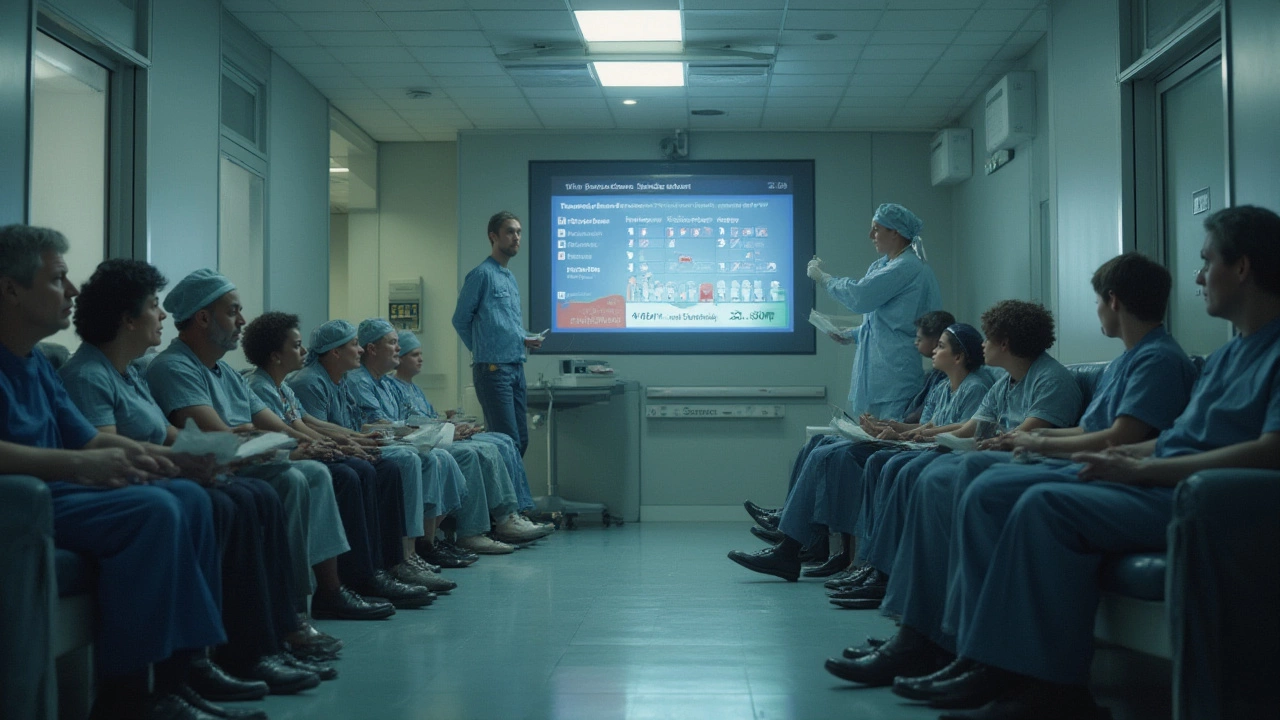Understanding Healthcare Expenses and How to Keep Them in Check
Ever looked at a hospital bill and wondered why it’s so high? You’re not alone. From NHS waiting times to private insurance premiums, the cost of staying healthy can feel like a maze. Let’s break down the biggest money‑makers in healthcare and give you real‑world tricks to spend less without skimping on care.
What Makes Your Health Bill So Big?
First, know the main drivers. In the UK, the NHS covers most treatments, but you still pay for prescriptions, dental work, and eye care. When you need surgery or a quick appointment, long waiting lists can push you toward private options, which come with hefty fees. In the US, insurance premiums, deductibles, and co‑pays dominate the picture. Add in pricey procedures like cosmetic surgery, dental implants, or trauma care, and the numbers add up fast.
For example, a major surgery such as a knee replacement can cost anywhere from £8,000 to £15,000 in the NHS, but a private hospital may charge £20,000‑£30,000. If you’re buying private health insurance in the UK, monthly premiums in 2025 average £50‑£120, depending on coverage level. In the US, a single‑person plan can top $600 a month, and that’s before you factor in the deductible you’ll need to meet before the insurer starts paying.
Smart Ways to Reduce Your Healthcare Expenses
Now that you see where the money goes, here are five practical steps you can start today:
- Use NHS services wisely. Schedule routine check‑ups early to avoid emergency visits. If a procedure isn’t urgent, ask your GP about alternative treatments that may be covered.
- Shop around for private insurance. Compare at least three providers, check what’s covered, and look for discounts if you’re over 30 or a non‑smoker. Some plans waive the first‑month premium if you enroll through your employer.
- Consider medical tourism for big tickets. Dental implants, top surgery, or even certain elective procedures can be 40‑70% cheaper in countries like Hungary or Thailand. Just verify the clinic’s accreditation and factor travel costs into the total.
- Take advantage of prescription savings. In the UK, the NHS Prescription Prepayment Certificate (PPC) caps your spend at £450 per year. In the US, use generic versions and ask your doctor for a 90‑day supply to lower the per‑month price.
- Stay healthy to avoid costly care. Regular exercise, a balanced diet, and routine dental hygiene cut down on chronic disease and expensive interventions later on.
These tips work whether you’re dealing with NHS waiting lists, private hospital bills, or high insurance premiums. The key is to stay informed, compare options, and plan ahead.
Remember, healthcare expenses aren’t set in stone. By knowing the cost drivers and applying a few simple strategies, you can protect your pocket while still getting the care you need.
Most Expensive Surgeries: Costs, Insights & What to Expect
Discover which surgery is truly the most expensive, why the costs skyrocket, and tips for navigating huge medical bills. Get the facts in plain English.
Largest Expense for Private Hospitals: Breaking Down the Real Cost of Surgery
Hospitals deal with massive bills every day, but the single biggest expense isn't what most people expect. Explore what drives up private surgery costs, including surprising facts about staff, equipment, and hidden overhead. Learn why surgeries cost so much and what makes private hospitals charge more. Find out practical tips that might help you avoid extra charges or pick the right hospital for your surgery. Everything you ever wondered about hospital bills without the confusing jargon.
Uncovering the Most Expensive Private Surgery Treatments
Navigating the world of private surgery can be overwhelming, especially when it comes to costs. From complex heart procedures to intricate spinal surgeries, some treatments carry hefty price tags. This article breaks down which private surgeries are the priciest and why. Get actionable tips to manage these expenses and understand the financial implications involved.
Refusing a Price Reduction for Private Surgeries: Practical Strategies
Discussing private surgery costs can be tricky, especially when patients request price cuts. This article outlines practical strategies for refusing requests for price reductions without compromising patient relations. It emphasizes the importance of transparency in pricing, value justification, and empathetic communication. Learn how to maintain a professional yet understanding stance in these sensitive conversations. Equip yourself with knowledge to handle such situations confidently.
Why Is US Healthcare So Expensive?
US healthcare is notoriously expensive, leaving many wondering why their medical bills are so high. This article explores various factors, including administrative fees, pharmaceutical prices, and the predominance of private insurance, all contributing to the staggering costs. It also highlights the impact on everyday Americans and offers practical insights into navigating the system efficiently. Understanding these dynamics can empower individuals to make informed healthcare choices.
Understanding the Top Hospital Costs: A Look at Private Surgery Expenses
In the world of healthcare, hospitals face significant expenses to ensure they provide the best care possible. From advanced equipment and technology to highly skilled staff and comprehensive patient services, these costs add up. This article explores the top three most significant expenses that hospitals face, particularly focusing on private surgery costs. Readers will gain insight into why healthcare costs are so high and what this means for both hospitals and patients.






